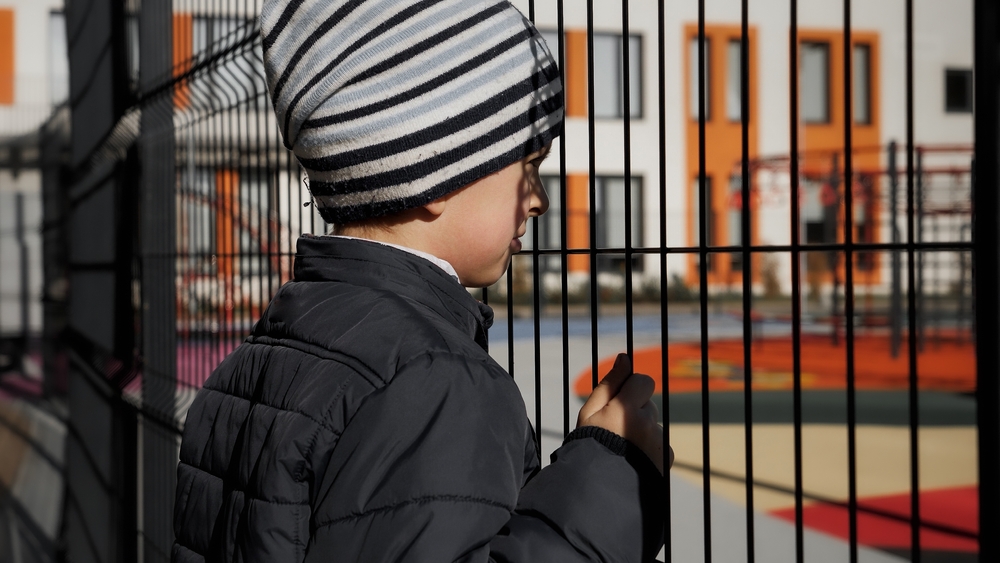Emotional validation is like that warm fuzzy feeling you get when someone truly sees you, hears you, and understands your feelings. It’s pretty darn important, especially as a kid. However, if you didn’t get enough of it growing up, it can leave a lasting impact. Don’t be too upset, though. Awareness is the first step to healing and building stronger relationships. Here’s how you know you were lacking in this department growing up.
1. You struggle to identify and express your own emotions.

Growing up, your feelings might’ve been dismissed, ignored, or even ridiculed. This can make it really hard to know how you feel in the present moment. Maybe you bottle everything up, struggle to find the right words, or even get overwhelmed by seemingly minor emotions. As Psychology Today points out, your feelings are valid, and it’s okay to take time to understand and express them.
2. You constantly seek validation from outside sources.

If your parents didn’t offer consistent affirmation or support, it’s natural to seek it elsewhere. This might mean constantly needing compliments from friends, partners, or even strangers. You might base your self-worth on external achievements or how people see you. But remember, true validation comes from within.
3. You’re overly critical of yourself.

When you haven’t received enough positive reinforcement growing up, it’s easy to internalize a critical voice. You might constantly second-guess yourself, focus on your flaws, or feel like you’re never good enough. This relentless self-criticism is exhausting and can hinder your growth.
4. You have trouble setting boundaries.

If your boundaries were consistently ignored as a child, it can be difficult to set them as an adult. You might feel guilty for saying “no,” worry about upsetting people, or struggle to stand up for yourself. Remember, healthy boundaries are essential for self-respect and healthy relationships.
5. You’re drawn to people who treat you poorly.

Sadly, sometimes we subconsciously seek out relationships that mirror our childhood experiences. If you didn’t receive consistent love and respect as a child, you might find yourself attracted to partners who are emotionally unavailable, critical, or even abusive. It’s important to recognize these patterns and break the cycle by choosing partners who treat you with the kindness and respect you deserve.
6. You struggle with perfectionism.

Did you have the kind of parents who only praised you when you got straight As or won that big game? This can lead to a crippling fear of failure and a relentless pursuit of perfection. But remember, nobody’s perfect, and making mistakes is a part of learning and growing.
7. You don’t trust many people at all.

If your feelings weren’t taken seriously as a child, it can be hard to believe that anyone will care about or respect your emotions now. You might be suspicious of compliments, worry that people have ulterior motives, or struggle to open up to people. Building trust takes time and effort, but it’s essential for healthy relationships, Harvard Business Review reminds us.
8. You often feel like you don’t matter.

If your thoughts, opinions, or needs were frequently dismissed or ignored, it can leave you with a lingering feeling of unimportance. You might downplay your achievements, apologize excessively, or feel invisible in social situations. Remember, you matter, your voice matters, and you have just as much right to take up space in the world as anyone else.
9. You have difficulty receiving compliments.

Someone says you look nice, and your instinct is to deflect or downplay it. You might say, “Oh, this old thing?” or make a self-deprecating joke. This difficulty in accepting praise could stem from a lack of positive reinforcement as a child. You might not feel worthy of praise or worry that accepting it makes you seem arrogant.
10. You find it difficult to trust your own intuition.

If your thoughts and feelings were frequently dismissed or invalidated, you might have learned to distrust your own inner voice. You might second-guess your decisions, constantly seek reassurance from others, or struggle to make choices without feeling overwhelmed by anxiety.
11. You’re afraid of rejection or abandonment.

A lack of emotional validation can create a deep-seated fear of being rejected or abandoned. You might cling to relationships, even if they’re unhealthy, or go to great lengths to avoid conflict. This fear can hold you back from forming healthy attachments and pursuing your own needs.
12. You have a tendency to over-apologize.

Even for minor mistakes or inconveniences, you might find yourself saying “sorry” excessively. This can be a sign of feeling like you’re always in the wrong or that you need to constantly prove your worth. Remember, it’s okay to make mistakes and not everything is your fault.
13. You struggle to maintain healthy relationships.

Past emotional neglect can make it difficult to navigate relationships as an adult. You might have trouble communicating your needs, setting boundaries, or trusting your partner. You might also repeat patterns of codependency or find yourself attracted to emotionally unavailable partners.
14. You have difficulty asking for help.

If your requests for help were ignored or met with criticism as a child, you might have learned to rely solely on yourself. This can make it hard to ask for support, even when you desperately need it. Remember, vulnerability is not a weakness, and seeking help is a sign of strength.
15. You seek out external validation in unhealthy ways.

This might manifest as workaholism, addiction, or seeking approval through social media. If your emotional needs weren’t met as a child, you might try to fill that void through external sources, even if they ultimately harm your well-being. It’s important to recognize these patterns and seek healthier ways to feel validated and loved.
Enjoy this piece? Give it a like and follow PsychLove on MSN for more!



